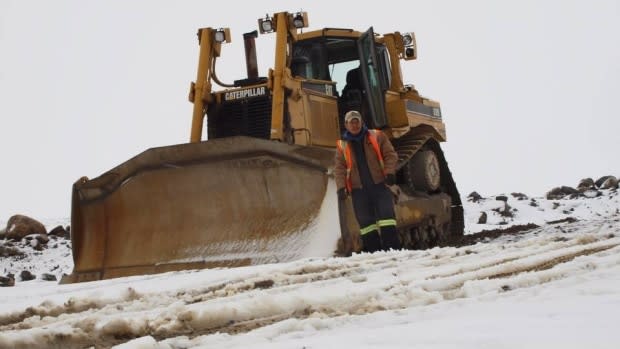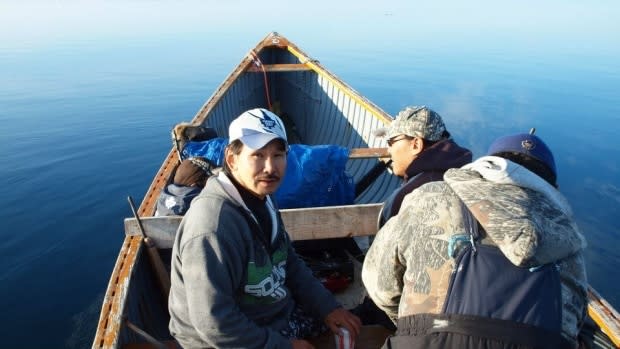Keepers of the Language: Inuktitut helps host stay in touch with his roots
CBC is doing a series of stories to recognize that the United Nations has declared 2019 the International Year of Indigenous Languages. The observance is meant to raise awareness about the consequences of losing endangered languages, and to establish a link between language, development, peace and reconciliation.
Qavavao Peter, host of CBC Nunavut's morning radio program Qulliq, is a man between two worlds.
Born and raised in the small hamlet of Cape Dorset, Peter now lives — and broadcasts — in the territorial capital of Iqaluit. A long-time broadcaster, he's broken up several stints at the Inuit Broadcasting Corporation and CBC with work as a heavy equipment operator.
And, unlike many of CBC's Indigenous language hosts, Peter hosts a blended program: half in English, half in Inuktitut.
"It's a bit of a challenge," Peter said of flipping between languages. "When I first started, it was quite difficult ... but after some time, you get so used to it, it just becomes a normal thing."
From Cape Dorset to the CBC
It's been a long journey from Cape Dorset to the CBC for Peter. While working for the hamlet as a water truck driver, he began his broadcasting career by becoming the part-time host at the community's small radio station.
There, he broadcast in Inuktitut and English, something that would come in handy as he became the voice many Nunavummiut start their day listening to.
After stints at the Inuit Broadcasting Corporation as both a host and a puppeteer on a children's program — "I had fun with it," he said — Peter again found himself back in Cape Dorset working as a heavy equipment operator.

Then, six years ago, he saw an ad for a technical operator position at the CBC in Iqaluit. Applying on a whim, he was hired. Eventually, he became the host of the station's lunchtime program and, finally, of Qulliq, where he's been for the last three years.
Peter said the move to Iqaluit with his family hammered home the importance of his work. He noted that in Iqaluit, far fewer youth are fluent in Inuktitut than in the communities, where a traditional lifestyle is more prevalent.
"There's not a lot of people that fluently speak Inuktitut in the city, especially," he said. "So I thought that would be a good way to help get our language back.
"I started seeing my family, my cousins that were living in the city who started losing their language. And I just didn't want my kids to go through that."
Now living in the city himself, Peter emphasizes the importance of his mother tongue to his own children, admitting that sometimes he pretends not to understand them in English, so they speak to him in Inuktitut.
'I'm here to help'
In addition to giving him another opportunity to revitalize Inuktitut, Qulliq gives him an avenue to stories about life on the land — something that he largely left behind when he moved to a broadcasting career.
"When I was back [in Cape Dorset], every weekend, I would go fishing or geese hunting," he said. "At the time, we were able to go hunt caribou."

"It makes me remember all the stuff that I have done out on the land: how to survive, and what I need."
Now a prominent voice in Indigenous language broadcasting, Peter's advice for Inuit looking to follow in his footsteps is simple: don't do it on your own.
"At first, it's going to be nerve wracking," he said. "But there's always people around here [to help], especially in this beautiful place that I've got.
"So just know that in here, there's always the support. Someone's always going to help. I'm here to help. So if you ever need anything, just let me know."



